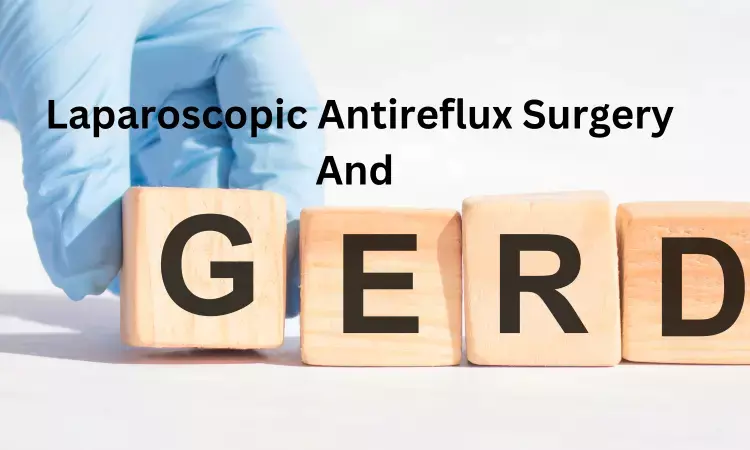- Home
- Medical news & Guidelines
- Anesthesiology
- Cardiology and CTVS
- Critical Care
- Dentistry
- Dermatology
- Diabetes and Endocrinology
- ENT
- Gastroenterology
- Medicine
- Nephrology
- Neurology
- Obstretics-Gynaecology
- Oncology
- Ophthalmology
- Orthopaedics
- Pediatrics-Neonatology
- Psychiatry
- Pulmonology
- Radiology
- Surgery
- Urology
- Laboratory Medicine
- Diet
- Nursing
- Paramedical
- Physiotherapy
- Health news
- Fact Check
- Bone Health Fact Check
- Brain Health Fact Check
- Cancer Related Fact Check
- Child Care Fact Check
- Dental and oral health fact check
- Diabetes and metabolic health fact check
- Diet and Nutrition Fact Check
- Eye and ENT Care Fact Check
- Fitness fact check
- Gut health fact check
- Heart health fact check
- Kidney health fact check
- Medical education fact check
- Men's health fact check
- Respiratory fact check
- Skin and hair care fact check
- Vaccine and Immunization fact check
- Women's health fact check
- AYUSH
- State News
- Andaman and Nicobar Islands
- Andhra Pradesh
- Arunachal Pradesh
- Assam
- Bihar
- Chandigarh
- Chattisgarh
- Dadra and Nagar Haveli
- Daman and Diu
- Delhi
- Goa
- Gujarat
- Haryana
- Himachal Pradesh
- Jammu & Kashmir
- Jharkhand
- Karnataka
- Kerala
- Ladakh
- Lakshadweep
- Madhya Pradesh
- Maharashtra
- Manipur
- Meghalaya
- Mizoram
- Nagaland
- Odisha
- Puducherry
- Punjab
- Rajasthan
- Sikkim
- Tamil Nadu
- Telangana
- Tripura
- Uttar Pradesh
- Uttrakhand
- West Bengal
- Medical Education
- Industry
Laparoscopic antireflux surgery effective treatment for GERD over more than 20 years

Gastroesophageal reflux disease (GERD), is a very common gastrointestinal disease affecting millions of individuals worldwide, with a significant economic impact and loss of quality of life. Laparoscopic antireflux surgery (LARS) is widely used medical treatment in treating GERD with or without hiatal hernia (HH) replacing open fundoplication.
The current study in Journal Of Gastrointestinal Surgery examined the durability of laparoscopic fundoplication based on a follow-up of at least 20 years in a cohort of consecutive patients treated with LARS for GERD and/or large HH at a national referral center for esophageal diseases.
The present study is one of the largest population study to have been followed up for more than 20 years and indicates a success rate of 80.4% among uncomplicated GERD patients and 63.3% among patients with large HH found that laparoscopic antireflux surgery is effective and durable for more than 20 years in patients.
The researchers performed a retrospective study with prospectively collecting data on all patients who underwent laparoscopic fundoplication for GERD and/or large HH at the Department of Surgical, Oncological and Gastroenterological Sciences, University of Padova (Italy), between 1992 and 2001. Patients were divided into two groups: (i) a GERD group comprising patients with abnormal exposure of the distal esophagus to gastric acid detected on pH monitoring, with or without type I sliding HH (<1/3 of the stomach herniated in the chest); and (ii) an HH group comprising patients with > 1/3 of the stomach herniated in the chest: paraesophageal (type II), mixed (type III) or complex (type IV) HH. Patients treated with concurrent Collis gastroplasty, those who had upper GI surgery for other diseases.
The key findings of the study are
• A total of 215 patients underwent LARS at their department. Four patients (1.8%) had concomitant Collis gastroplasty and were excluded.
• During the follow-up, 4 patients (1.8%) had other upper gastrointestinal surgery (1 surgical operation for aorto-mesenteric compass syndrome, 3 sleeve gastrectomy), therefore they met exclusion criteria.
• Before completing 20 years of follow-up, 24 patients (11.2%) died for reasons not attributable to the LARS, while 41 patients (19%) were lost to follow-up.
• The study population thus consisted of 142 patients: 112 in the GERD group and 30 in the HH group. Conversion to open surgery proved necessary in 8 patients (5.6%), and intraoperative and perioperative complications were recorded in 9 (6.3%).
• At a median follow-up of 22 years (IQR: 21-24), the success rate in the study population was 76.8% (109/142): 80.3% (90/112) in the GERD group, and 63.3% (19/30) in the HH group (p=0.09).
• Gas bloat syndrome developed in 6 patients (4.2%): 5 in the GERD group, and 1 in the HH group. Revisional surgery was necessary in 14 patients (9.8%): 9 in the GERD group, and 5 in the HH group.
• After 20 years of follow-up, an overall 86.8% of patients were satisfied or very satisfied with their LARS.
Researchers concluded that “Our study demonstrated that laparoscopic antireflux surgery is effective and durable (for >20 years) in patients with uncomplicated GERD and, to a lesser extent, in those with a large hiatal hernia.”
Reference: Salvador, R., Vittori, A., Capovilla, G. et al. Antireflux Surgery’s Lifespan: 20 Years After Laparoscopic Fundoplication. J Gastrointest Surg (2023). https://doi.org/10.1007/s11605-023-05797-4.
MSc. Neuroscience
Niveditha Subramani a MSc. Neuroscience (Faculty of Medicine) graduate from University of Madras, Chennai. Ambitious in Neuro research having worked in motor diseases and neuron apoptosis is interested in more of new upcoming research and their advancement in field of medicine. She has an engrossed skill towards writing and her roles at Medical dialogue include Sr. Content writer. Her news covers new discoveries and updates in field of medicine. She can be reached at editorial@medicaldialogues.in
Dr Kamal Kant Kohli-MBBS, DTCD- a chest specialist with more than 30 years of practice and a flair for writing clinical articles, Dr Kamal Kant Kohli joined Medical Dialogues as a Chief Editor of Medical News. Besides writing articles, as an editor, he proofreads and verifies all the medical content published on Medical Dialogues including those coming from journals, studies,medical conferences,guidelines etc. Email: drkohli@medicaldialogues.in. Contact no. 011-43720751


